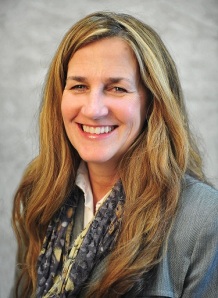
DPHHS Director Richard Opper
DPHHS is proposing to take two-percent of a total four-percent increase in rates for these providers and distribute that money in other ways than just an equal raise to all providers. DPHHS Director Richard Opper says this could include putting in place ‘performance measures’ to give higher raises to facilities operating more successfully.
“We are always looking for ways to deliver services more efficiently and effectively,” Opper said. “So, if a provider were to come to us with a more creative way to distribute services…I think that kind of innovation needs to be rewarded.”
Opper said he does not have specifics as to what those performance measures may be, and says that’s important, because it’s something he thinks the Department should negotiate with some of the providers of services for the developmentally disabled.
“There has not been any outreach,” said Missoula Developmental Service Corporation CEO Fran Sadowski, who points out these new increased rates go into effect on July first. “So, if that’s his (Opper’s) intent, when is it gonna happen?”
The 2013 Legislature approved two-percent rate increases across the board for providers of Medicaid Services. However, lawmakers singled out providers of services for the developmentally disabled for the larger, four-percent, increases. Sadowski said it’s not unusual for one type of provider to receive a larger increase. She says providers of services for the developmentally disabled have not seen an increase in their rates since 2009.
“We’re not getting rich on this type of increase,” Sadowski said. “Some folks are just trying to stay afloat.”
Sadowski said the disabled patients of facilities like her’s are often under 24-hour care, and if those places shut down the patients may end up on the streets, in a nursing home, or at the state’s institution in Boulder, the Montana Developmental Center. She said MDC costs taxpayers more per patient than community-based centers.

Sen. Mary Caferro (D-Helena)
Sen. Mary Caferro, D-Helena, led the legislative effort to have higher rate increases for providers of services to the developmentally disabled. She does not at all approve of the idea to make any of the rate increases performance-based.
“There was nothing in the (bill’s) language about distribution options, there are no options,” she said. “It would be wonderful if the executive would respect the legislature and follow legislative intent.”
Opper said the Department wants to negotiate on the plan proposal, adding a straight four-percent increase is not off the table. The public comment period for the proposal ends May 30th
Stakeholders discuss Medicaid Expansion at annual Healthcare Forum
Stakeholders across the healthcare industry gathered in Helena today to discuss big changes coming in the next year.
Medicaid Expansion dominated the conversation at this healthcare forum conference.
That expansion is an option states have to comply with provisions in the Federal Affordable Care Act.
It still would have to be approved by a Republican-dominated legislature.
The Montana Healthcare Forum is an annual event. It’s organized and sponsored by stakeholders ranging from insurance companies to hospitals, nonprofits and universities.
Montana AARP Advocacy Director Claudia Clifford was on the organizing committee. She said there was a feeling of particular importance this year.
“First of all, it’s right before a legislative session,” she said, “that always makes things feel more urgent but this is a big deal that we’re gonna address probably providing healthcare for half of our uninsured population.”
Or, at least that’s what’s on the table for state legislators—Medicaid Expansion. If the state provides $5 million in what’s being called administrative costs, the federal government will provide the rest of the money to cover about 80 thousand new Montanans under Medicaid.
Economist Sarah Wilhelm works as Research Director for the nonprofit Montana Budget and Policy Center. She says recent research from the University of Montana shows expansion to be a good deal for the state.
“The numbers are really striking because what we see is that medicaid expansion could actually pay for itself,” she said.
Wilhelm says a large influx of federal dollars could create new jobs and higher incomes. This would lead to increased tax revenues that would offset the money paid by the state over a nine year time frame.
“It’s a historic moment,” said Helena Democratic Senator Mary Caferro. “It’s an opportunity to finally do something about the uninsured issue.”
She says the information presented at the healthcare forum solidifies her support for expanding Medicaid. She says she believes lawmakers will put their differences aside and approve it.
“Because Legislators recognize that the majority of montanans are not extreme and the majority of Montanans want real solutions to this issue,” Caferro said.
Democrats like Caferro, however, are not in control of the Legislature.
“Federal Dollars isn’t just free money that falls out of a tree, those dollars are coming from us,” said Helena Republican Representative Liz Bangerter.
She presented at the healthcare forum with Democratic Senator Caferro. Bangerter says lawmakers need to think about the stability of those federal funds before expansion.
“I just don’t think we can guarantee that those payments will be at that level for the next nine years no matter whose in the executive office or in congress,” she said, adding she’s not so sure Republican lawmakers will go for it. “If you were to just go up and say Federal Medicaid expansion the caucus would kill it.”
But a uniquely Montana solution, crafted along with the stakeholders at the healthcare forum, she says that may be considered.
The state budget outlined by outgoing Governor Brian Schweitzer calls for passing the expansion.
